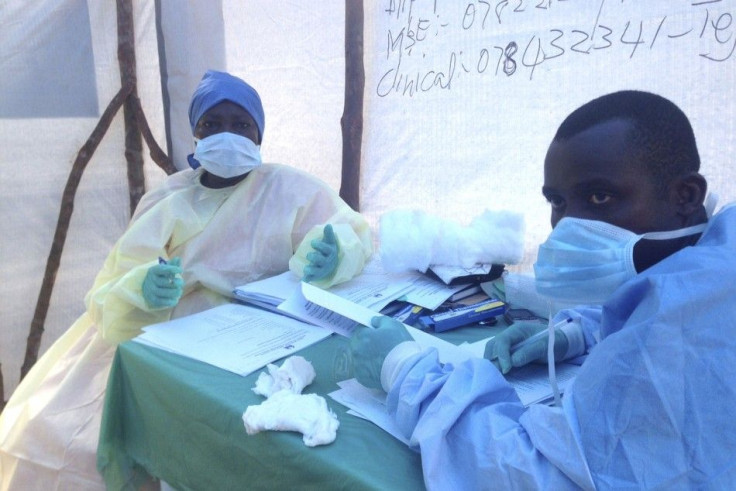Ebola Outbreak: Airlines Can Deny Passengers Showing Symptoms of Disease – CDC

Global airlines are now given the leeway to deny passengers it believes are exhibiting symptoms of the deadly Ebola virus.
In a new guideline released by the U.S. Centers for Disease Control and Prevention, global airlines are further directed to isolate infected passengers from other flyers during flights.
CDC advised travellers who have been exposed to Ebola virus disease to avoid travelling on commercial airplanes until after the 21-day monitoring for symptoms after exposure has been cleared. "Sick travelers should delay travel until cleared to travel by a doctor or public health authority," the agency said.
Isolated passengers will be given surgical masks to ensure bodily fluids are not spread within the aircraft.
"Airlines should consider using their own authority ... to deny boarding of sick travelers if Ebola is suspected," the CDC said.
The CDC new guideline comes as U.S. airport authorities beef up measures to determine and prevent the spread of the deadly Ebola virus when delegates from 50 countries arrive in the country this week for a leadership summit. Several African heads of state are expected to arrive.
The Ebola virus has killed 887 in the three western Africans nations of Guinea, Liberia and Sierra Leone. Nigeria has reported its second case.
Read: Ebola Outbreak: Liberia Struggles to Control More Potential Health Scare from Rotting Corpses, Orders Cremation; Death Toll 887
AP reported special instructions have been given to border patrol agents at Washington's Dulles International and New York's JFK airports. They were directed to watch out for people with fever, headache, achiness, sore throat, diarrhea, vomiting, stomach pain, rash or red eyes.
The U.S. Secret Service agents who will handle the security for the three-day summit were likewise briefed on what to look for and how to respond.
Anyone found or suspected of carrying the virus will immediately be quarantined.
"There is always the possibility that someone with an infectious disease can enter the United States," Barbara Reynolds, CDC spokeswoman, said on Monday. "The public health concern is whether it would spread, and, if so, how quickly."
Cabin-cleaning staff of aircraft were also advised to take extra precautions as they go around their duties.
The CDC stressed the following when handling passengers suspected of carrying the Ebola virus:
Keep the sick person separated from others as much as possible
Provide the sick person with a surgical mask (if the sick person can tolerate wearing one) to reduce the number of droplets expelled into the air by talking, sneezing, or coughing
Give tissues to a sick person who cannot tolerate a mask
Provide a plastic bag for disposing of used tissues
Wear impermeable disposable gloves for direct contact with blood or other body fluids
The CDC also said airplanes traveling to countries affected with Ebola should carry Universal Precaution Kits, "as recommended by the International Civil Aviation Organization."





















